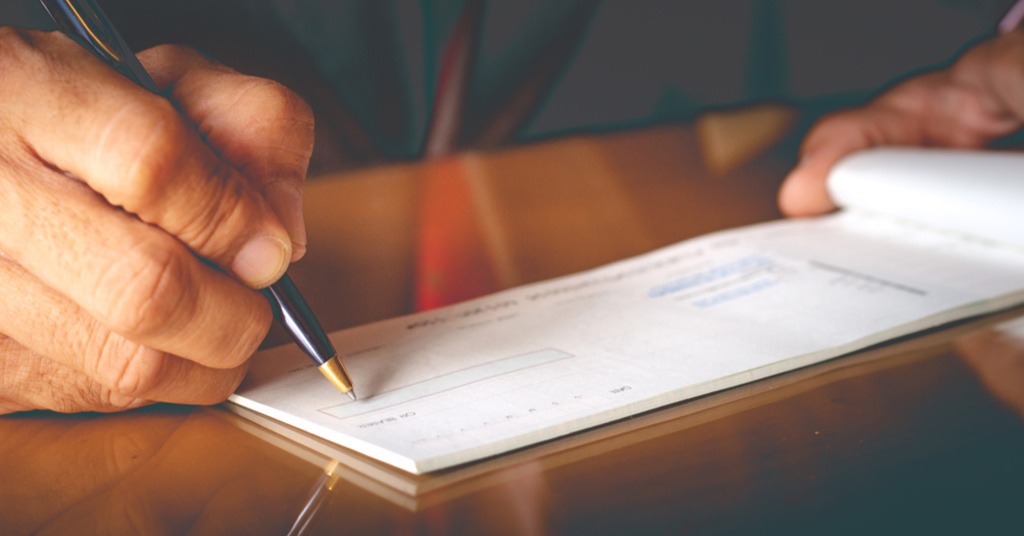
Chloe Marchbank
Freelance writer
Checks may seem as if they’ve had their day, but people still use them. In case you’re unfamiliar with them, checks are written, signed and dated instruments that instruct a bank to the pay the amount stated to the person on the check. This money is taken from the account to which the check is linked, which belongs to the business or person issuing the check.
It’s important to keep checks safe. If they fall into the wrong hands, these wrong hands can create counterfeit checks to steal from your bank account or use your account details to make payments online via e-checks.

Protecting yourself when paying by check. Source: shutterstock.com
How to keep checks secure
This doesn’t have to happen to you, however. The measures below can help you secure your check payments:
Track your outgoing checks
If you wish to gift a friend or relative a large amount of money, such as for a wedding present or a milestone birthday gift, you may decide to pay them by check. If so, keep an eye on your account to see if they’ve cashed the check. If not, contact them and ask if they’ve received it. If the check seems to have gotten lost in the post, contact your bank to block the cheque.
Choose a reputable check supplier with fraud prevention security features
If you need to issue checks as part of your business, consider a supplier that has a solid fraud prevention plan that includes protecting checks. Some companies supply checks that incorporate anti-fraud features such as security holograms, security coating and heat-sensitive icons, making it difficult to counterfeit your checks.
Fill out checks in full
You don’t want any blank cheques going out of your account, so don’t leave any parts of the cheque blank. Take special care to specify a person or business and the amount you wish to pay them. Don’t just put “cash” in the “pay to the order of” space. Anyone could cash the cheque, otherwise, and help themselves to the money in your checking account.
Monitor your accounts
Online banking makes it easy to quickly log into your bank account and track your spending. Visit your accounts every day. It only takes a minute. If you notice any suspicious activity, contact your bank immediately. A lot of banks allow you to set up alerts for any suspicious logins or transactions, or they may contact you directly to warn you about them anyway.
Avoid carrying your check book around with you
Store your check book and cheques away safely at home. If possible, avoid walking around with your check book on you. Instead, write out the check in advance if you know how much you’re going to spend and who the recipient of the payment will be.
Dispose of old checks and check books securely
Don’t throw out old checks or check books whole. Make sure you dispose of them securely. Shredding is the best way to take care of this. Otherwise people may find them and use the details on the check (book) to commit fraud.
Occasions when it’s not appropriate to use a check
Checks are handy for paying someone large sums of money, but it’s important to remember that when you issue a check, the money leaves your account directly. If you have expenses to cover but not enough money in your account and you issue a check, the check will bounce. As a result, you’ll incur a charge or penalty and be even more out of pocket.
If you need to make a quick payment, you may prefer to pay either in cash or by transfer, rather than by check. It also may be slightly inconvenient to spend time writing a check if you’re out at a restaurant or bar.
Payment by check hasn’t died out, and you should take care to protect yourself if you like to pay by check. Taking simple measures such as using a secure check supplier and tracking your spending and the checks you issue will help you to protect your payments and prevent criminals from using checks to steal from your account.
SEE ALSO:









